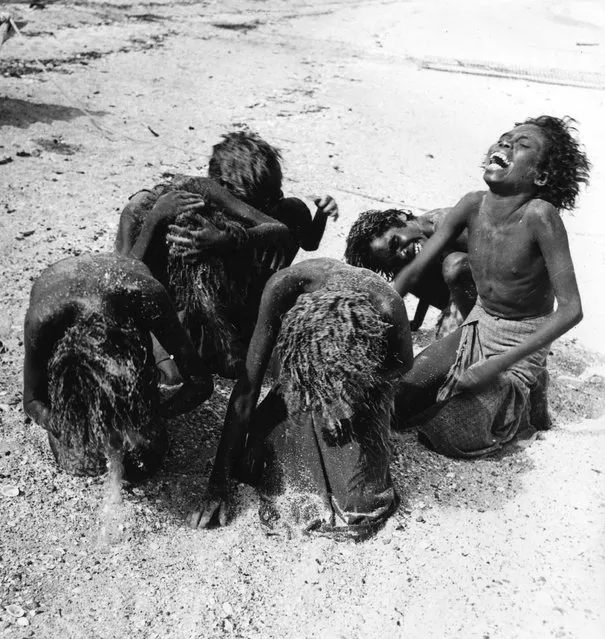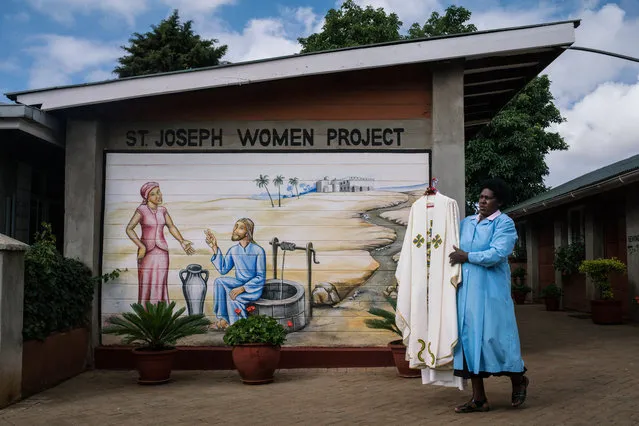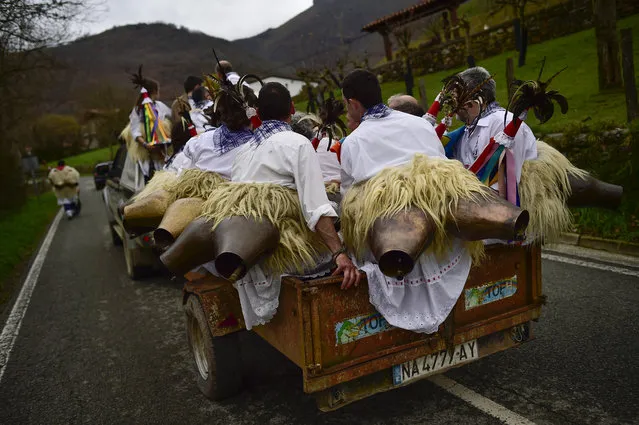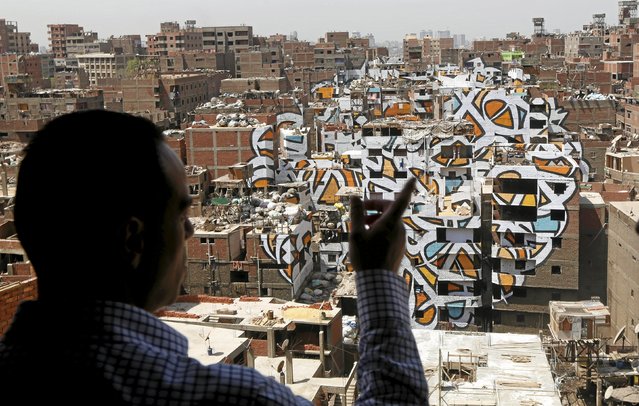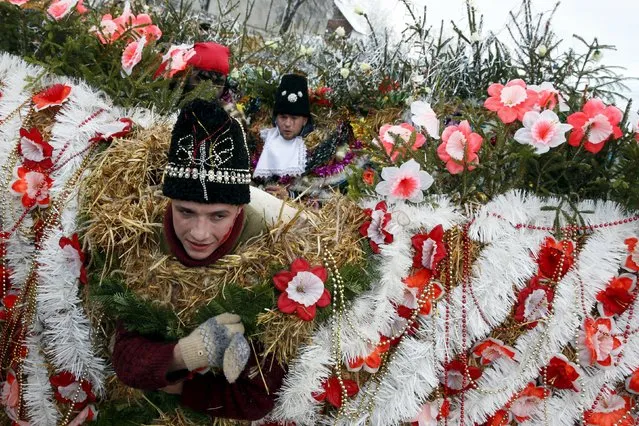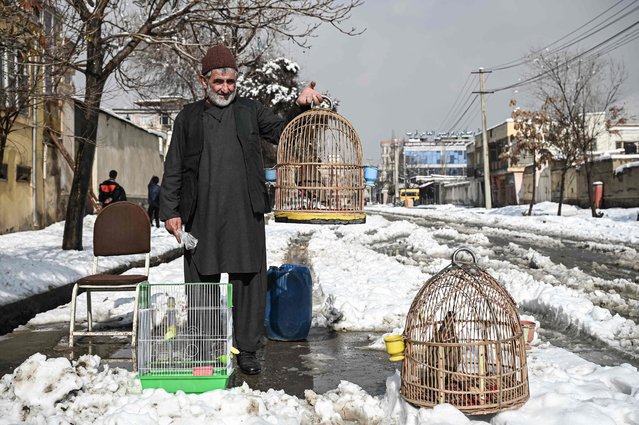
People help a woman overwhelmed by emotion and the heat during the mass funeral, attended by tens of thousands of mourners, of 613 coffins of newly-identified victims of the 1995 Srebrenica massacre at the Potocari cemetery and memorial near Srebrenica on July 11, 2011 in Potocari, Bosnia and Herzegovina. (Photo by Sean Gallup/Getty Images)
12 Jul 2011 11:53:00,post received
0 comments

